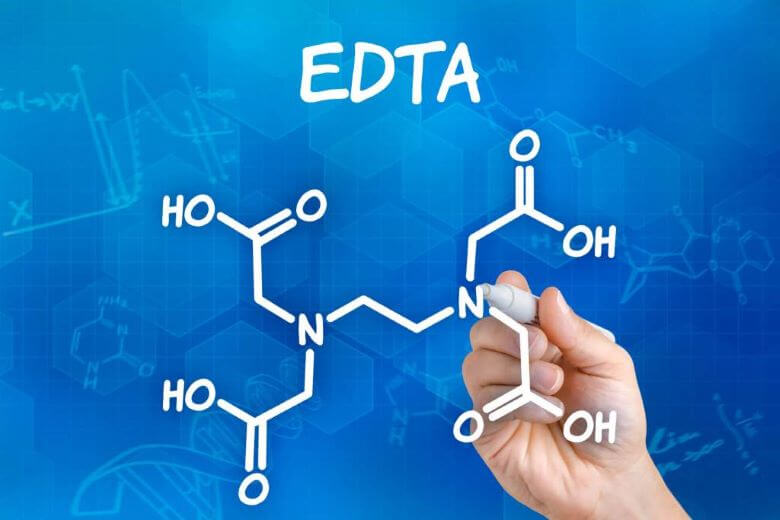EDTA Full Form | What is Ethylenediaminetetraacetic Acid
What is the full form of EDTA?
EDTA: Ethylenediaminetetraacetic Acid
EDTA stands for Ethylenediaminetetraacetic Acid. It is a chemical that is known by multiple names and is widely used for medical and industrial purposes. This chemical was first synthesized by Ferdinand Munz in 1935. It is a colourless, water-soluble solid with ethylenediaminetetraacetate as its conjugate base.
synthesized by Ferdinand Munz in 1935synthesized by Ferdinand Munz in 1935
Properties of EDTA:
- Formula: C10H16N2O8
- Average Mass: 292.24272
- Monoisotopic Mass: 09067
It is a widely used chelating agent in food, household products and as a medication in chelation therapy.
Structure of EDTA:
It is a dry and white crystalline powder and a hexadentate ligand, so, it forms six bonds with a central metal ion.
I) Uses in Food:
USFDA has approved EDTA for its use as an additive in various processed food items. It helps retain colour in canned foods like mushrooms, white potatoes, shrimp, clams, etc.
It is also used as a preservative in salads, mayonnaise, etc., as it bonds with enzymes that spoil food. It also helps retain the flavour of canned sodas, pickled cucumbers, pickled cabbage, etc.
II) Medicinal Uses of EDTA:
It is used as prescription medicine. It can be injected into the vein or muscle. Some of the medicinal uses of EDTA are given below:
- It is used to prevent clotting of blood samples and to remove lead and calcium from the body. So, it is widely used as an anticoagulant in blood banks.
- It is also used to prevent bacteria from creating a biofilm, which is a thin layer that sticks to the surface.
- It is used to treat lead poisoning and brain damage due to lead poisoning.
- It is used to treat irregular heartbeat caused by exposure to chemicals and to treat chest pain, high blood pressure, blood circulation issues, and more.
- It is also used as an ointment for skin related problems such as skin irritations caused by metals like nickel, copper and chromium.
- It is used in the root canal therapy before applying the dental adhesives.
- It is also present in some eye drops as it helps remove calcium deposits from the eye.
Side effects: A patient may experience any one of the following side effects after taking the EDTA.
Side effects:- Red skin rashes, blistering, peeling
- Nausea, vomiting, headache and diarrhea
- Pain, swelling and redness in the area where the injection is given
- You may feel dizzy if get up too fast from after taking the injection of EDTA
After taking the injection of EDTA, a person is required to lie down for a while as there can be a drop in the blood pressure for a while.
III) Household Product and Cosmetic Use
It is also widely used as an additive to soaps. It can chelate calcium and magnesium in hard water and thus improves the cleansing action of soap. Besides soaps, it is also used in cosmetics, mouthwashes, and other common topical preparations for skin.